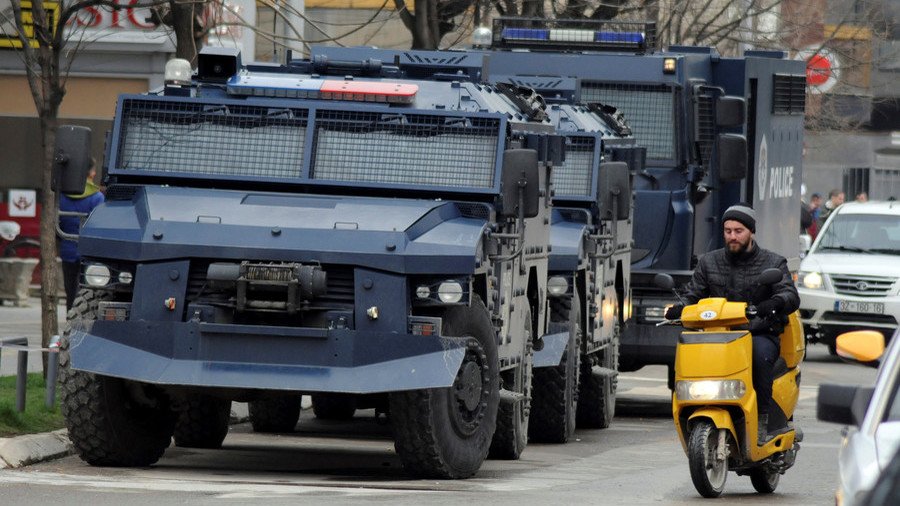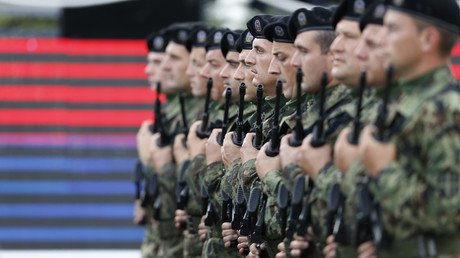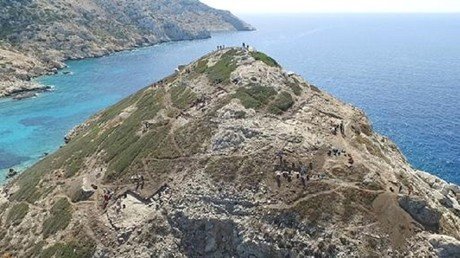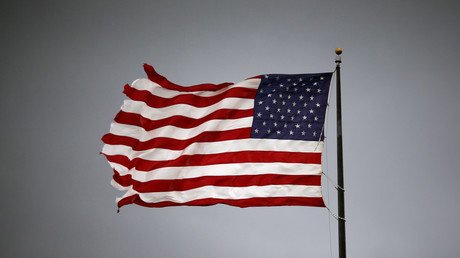One step from bloodshed: Moscow slams Kosovo invasion of Serb-majority area

The “reckless” intrusion of Kosovar Special Forces into the Serb-majority area of Kosovo could have sent the entire Balkans into a new spiral of violence, the Russian Foreign Ministry has warned.
The ministry’s comment was provoked by a recent incident, involving Kosovar police entering a northern part of the breakaway region, which is populated by ethnic Serbs. Pristina considers this area to be part of its self-proclaimed state while the locals refuse to recognize its authority, adding fuel to an already tense situation in relations between Pristina and Belgrade.
An “ostentatious invasion of Kosovo’s police special forces to the Serb regions in the northern part of the [area] on September 29, which violated the agreements between Belgrade and Pristina, was a provocation aimed at intimidating the Serbs living in Kosovo and exerting pressure on Serbia,” the Foreign Ministry’s spokeswoman Maria Zakharova said in a statement Monday.
Kosovo offers Israel an embassy in Jerusalem in exchange for recognition https://t.co/8TLPdcIBEepic.twitter.com/BhvT6DgvrO
— RT (@RT_com) September 22, 2018
Such “reckless actions” could have led to the “renewed bloodshed in Kosovo and the destabilization of the whole Balkan region,” she warned, adding that Kosovo’s continued attempts to take control over the Serb-inhabited areas would only lead to the escalation of the ethnic tensions.
Russia does not recognize Kosovo as an independent state. The Russian ministry has criticized the NATO-led international peacekeeping force known as KFOR, responsible for maintaining security in Kosovo, for its inaction in the face of such developments.
The comment comes days after some 60 heavily armed special police commanded by Pristina arrived on the territory of the Serb-majority autonomous region and took control of the local hydroelectric power station, reportedly detaining several Serbian citizens.
The incident prompted the Serbian government to put its armed forces on the highest combat readiness, thus putting the region on the brink of a new conflict. Pristina dismissed the claims of occupying the area and said there were no arrests carried out, according to the local deputy police commander, Besim Hoti.
The troops were in the area for a “single visit” and were providing security to the self-proclaimed state’s leader, Hashim Thaci, during his trip to the region.
The relations between Serbia and its breakaway province remain uneasy. Kosovo was separated from Serbia in 1999 with help of the massive NATO bombing campaign and its ethnic Albanian provisional government unilaterally declared independence in 2008.
Serbia has refused to recognize Kosovo’s independence. So far, 87 UN members, including Russia, China, India and Brazil as well as five NATO and EU members - Spain, Greece, Slovakia, Romania and Cyprus - still did not recognize it.
Even though Kosovo and Serbia have made steps to normalize relations, signing the Brussels Agreement in 2013, the situation in the ground remains incredibly tense. Even the vague prospect of a land swap along the “ethnic lines,” recently mulled by the leaderships of Kosovo and Serbia, has provoked a storm of outrage on both sides.
Revival of ethnic tensions or territorial disputes also risk reigniting old conflicts throughout the Balkan regions, notably known as Europe’s tinderbox. Any such conflict might spill over the borders or trigger a chain reaction in the neighboring countries such as Bosnia-Herzegovina, which fought an ethno-religious civil war in the 1990s and has been a step away from reignited hostilities ever since.
Like this story? Share it with a friend!















